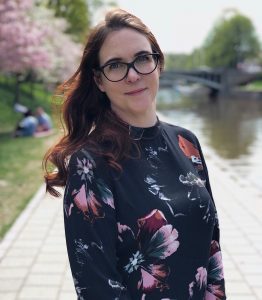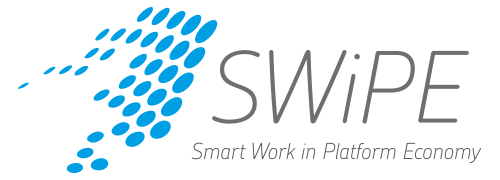 My dissertation analyzes constructions of an ideal gendered manager and employee in a mediated cultural setting. Our contemporary culture is mediated in many ways: Media is strongly embedded in our lives and has a possibility to select what issues become visible and how those issues are represented. In that way, media shapes our understandings of the world and how we make sense of it. In my dissertation, I focus on analyzing materials that have been compiled from a wide range of media, partly through cultural research, such as a close-up and visual analysis.
My dissertation analyzes constructions of an ideal gendered manager and employee in a mediated cultural setting. Our contemporary culture is mediated in many ways: Media is strongly embedded in our lives and has a possibility to select what issues become visible and how those issues are represented. In that way, media shapes our understandings of the world and how we make sense of it. In my dissertation, I focus on analyzing materials that have been compiled from a wide range of media, partly through cultural research, such as a close-up and visual analysis.
In this interdisciplinary work, the theoretical framework is built upon the doing gender perspective, which understands gender as something we do and as something dynamic. By adopting a poststructuralist view on gender, I understand it as socially and culturally constructed. In such an approach, the focus of the study expands from the individual level into contexts, social and cultural structures, and settings. Gender is dynamic: it has to do with doings and action. This way the fleeting nature of sex is expressed. At the same time, it is constantly present, but still difficult to reach and explore. The interest of my research is not focused on individual women or men, but the perspective of work expands from individuals to contexts, social and cultural structures and frameworks in which gender and a particular idea are produced and where media representation is present.
This dissertation shows that the constructions of an ideal manager and employee are still gendered in media texts and pictures. In addition, the gendering of expertise would appear to be on the different levels of working life, as I have studied employees and managers in both global and local contexts seeking regular work. The way in which leaders, entrepreneurs and experts are presented in the media has a broad social significance. People working in leading positions in society have wide visibility and create their own self-perceptions of possible ways of living, being, and advancing in their careers. The ideals presented in job advertisements come closer to individual people and act as gatekeepers for new, future experts who either identify with these ideals or not.
As a part of my doctoral thesis, we researched, among other things, how the femininity and the gendered power are enacted in the Economist’s articles about images of global and influential women leaders. In order to be represented in The Economist’s pages, the main character of the biographical article of a woman must be a recognized leader. However, research shows that the representations of these international leaders are still relatively traditional, referring, for example, to their family relationships and feminine qualities, placing them in position where they do not interfere with masculine discourse of management.
We also studied the idea of building an ideal expertise in job advertisements in Finland and Estonia. The study shows the gender and other dimensions, such as the age-coding in advertisements varying culturally, for example, by various illustrations, expressions and other means of highlighting. According to the study, the gendered expertise in job advertisements is done by subtly articulation and by permitting coexistence of several interpretation possibilities.
My research offers cultural rechapters on gender, demonstrates methodological new ways of studying the structure of gender in the economy, and emphasises the importance of media texts and images in building understanding.
Jatta Jännäri is a project researcher in SWiPE. Her dissertation Mediated construction of an ideal gendered manager and employee was examined at the University of Turku on the 8th of June 2018.
The dissertation is published electronic: http://urn.fi/URN:ISBN:978-951-29-7287-6
Translation by Marja Rautajoki.
